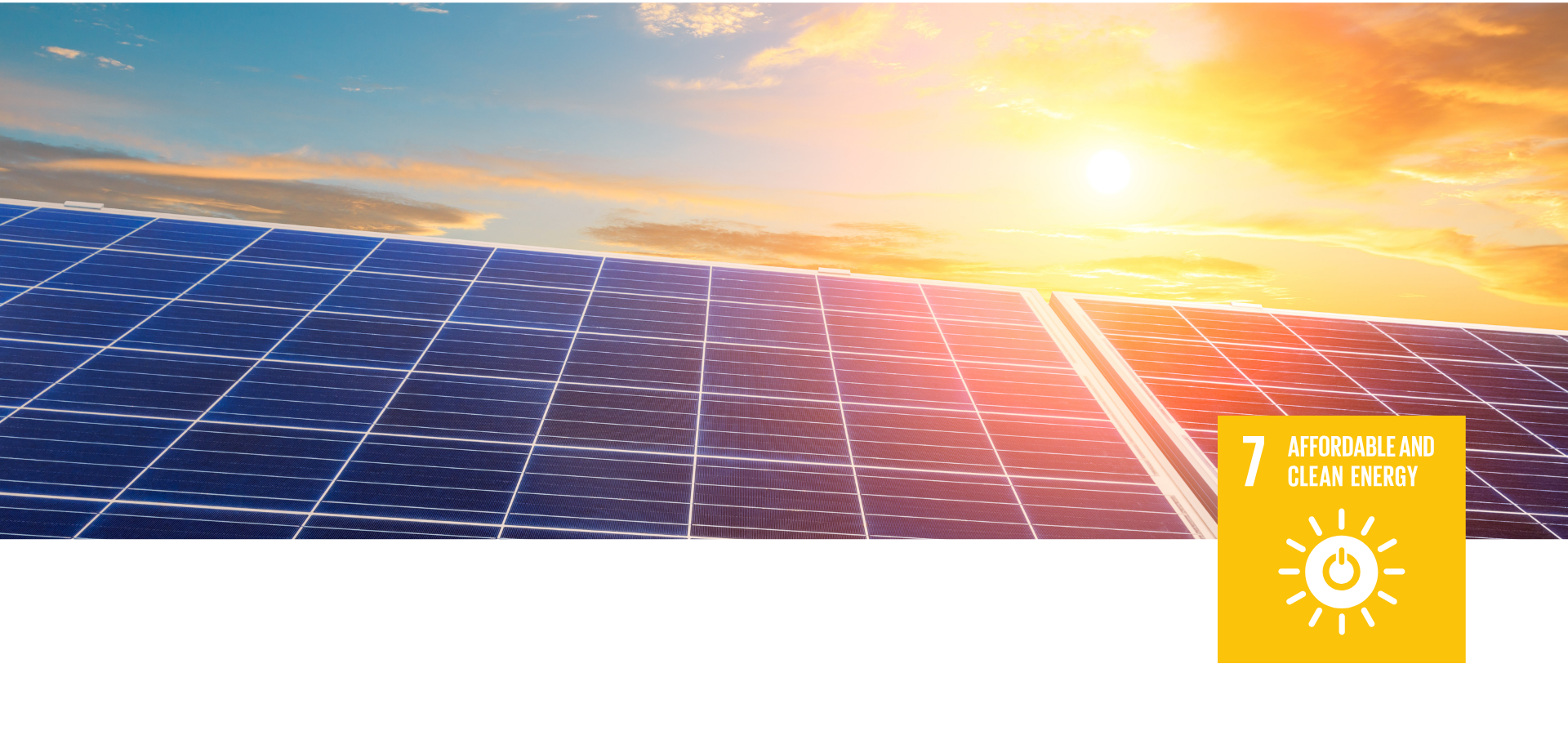
SDG 7: Affordable and Clean Energy
HKUST seeks to be a regional leader in prioritizing clean energy sources, promoting energy efficiency, and expanding renewable energy infrastructure. We aim to be a global leader in energy research and development, influencing policies and strategies while setting an example for sustainable development in Hong Kong and beyond. Through our campus operations and community engagement initiatives, HKUST plays an active role in renewable energy adoption and carbon emissions reduction.
Curriculum
51 related courses were offered in the 2022-23 academic year.
Research
According to Science Direct, from 2019 to 2023, HKUST published 1614 research papers addressing SDG 7.
About 53% of them are in the top 10% cite score and around 75% are internationally co-authored.
Research Highlights
New Electrode Design for Rechargeable Alkaline Zinc Batteries
A research team from our Department of Mechanical & Aerospace Engineering and Department of Chemistry developed a new electrode design that makes it possible to recharge alkaline zinc batteries. This is one of the most common types of non-rechargeable batteries used in our daily lives and can accelerate the move away from fossil fuels.
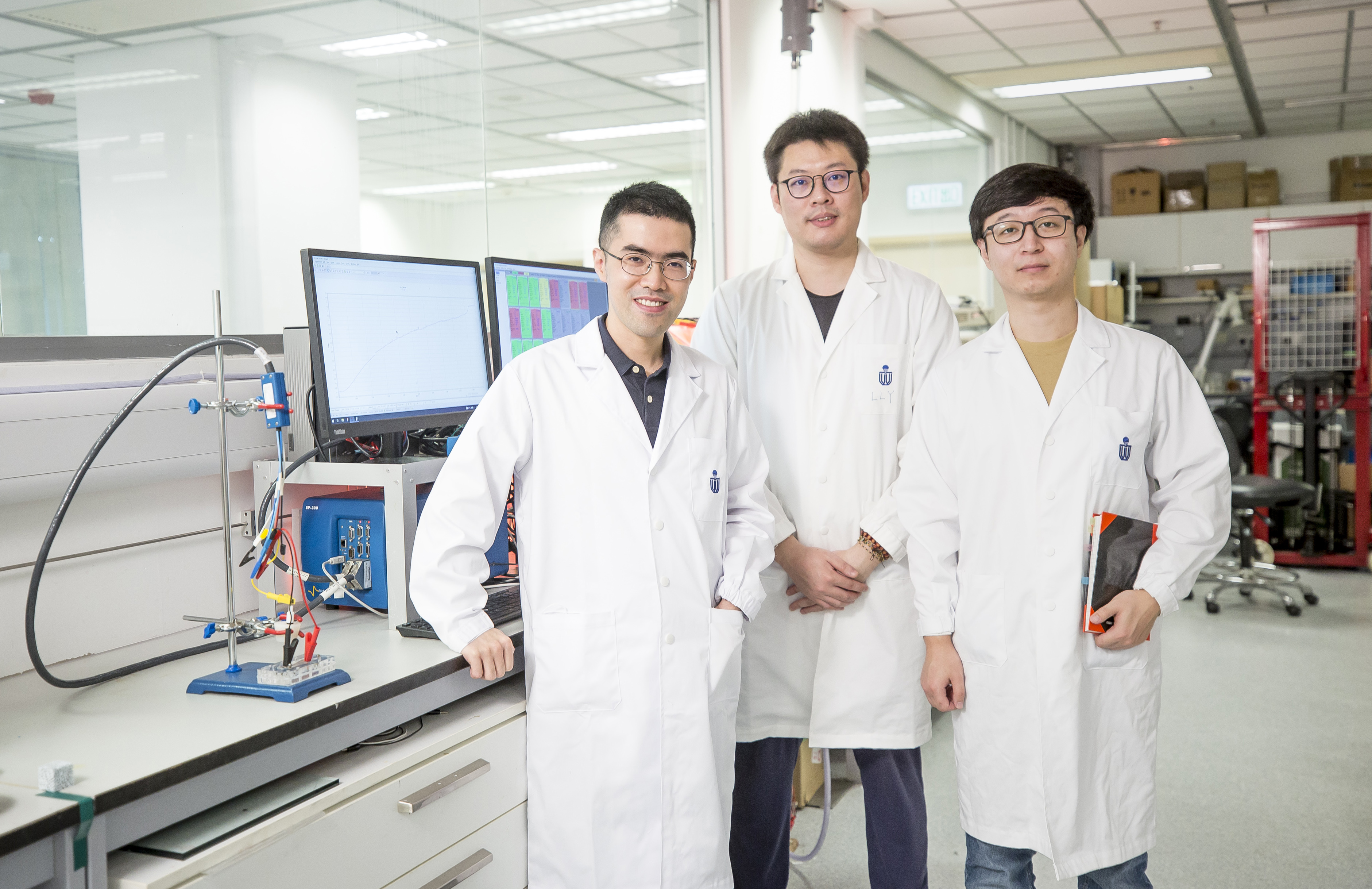
July 2022: Researchers develop nanoporous zinc electrodes that make primary alkaline zinc batteries rechargeable.
Smart Building Integrated Photovoltaic Systems Living Lab Project
The HKUST Sustainable Smart Campus as a Living Lab (SSC) is an effort to transform our campus into one where the campus itself is a platform for learning, experimenting, and showcasing new ideas and approaches.
The Smart Building Integrated Photovoltaic Systems Toward Zero Energy HKUST Campuses project explores solar energy harvesting on opaque facade areas and implements advanced clean energy systems like tailored colored facade integrated photovoltaic (FIPV) on campus buildings. Passive cooling techniques, such as radiative cooling and self-cleaning coatings, are also incorporated to enhance energy efficiency.
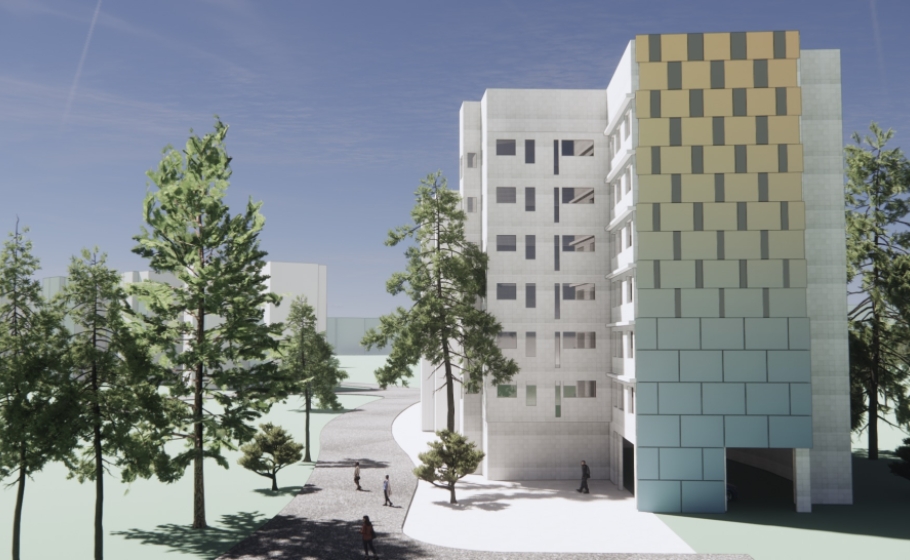
Smart Building Integrated Photovoltaic Systems Toward Zero Energy HKUST Campuses
Photovoltaic Solar Cells Sustainable Coating Living Lab Project
A Smart Cooling Strategy for Photovoltaic Solar Cells via A Sustainable Coating addresses the problem of overheating in photovoltaic (PV) solar panels, which reduces their energy conversion efficiency. The goal is to develop a sustainable cooling coating using metal-organic framework (MOF) and CaCl2 composites, which can be applied to the back of PV panels to lower their operating temperature by 10-15°C. This is expected to improve the electricity conversion efficiency by 2-5% and generate an additional 300,000 – 700,000 kWh of electricity yearly, making clean energy more accessible and affordable.
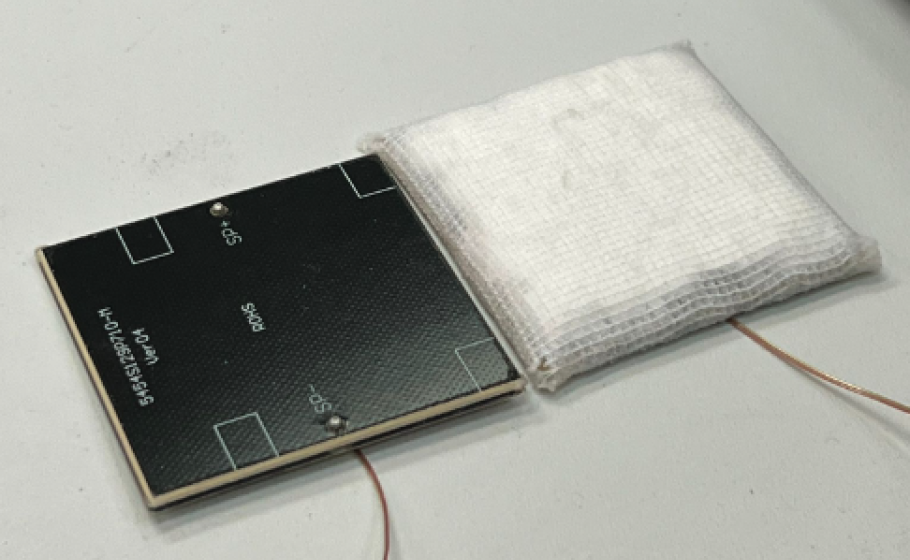
A Smart Cooling Strategy for Photovoltaic Solar Cells via A Sustainable Coating
Policy
Buildings Follow Energy Efficiency Standards
HKUST is committed to improving the energy efficiency of its new buildings as well as renovation projects through the implementation of newly updated HKUST High Performance Building Standards & Guidelines. The requirements outlined include anticipating future energy needs, maximizing metering and monitoring capabilities while keeping a flexible design to accommodate for future new sustainable technologies.
Net-Zero Carbon Investment Strategy
HKUST is the first University in Hong Kong to implement an Environmental, Social, and Governance (ESG) Policy to prioritize integrating ESG considerations into investment decisions. We believe in the importance of aligning our investment philosophy with sustainable development goals, which means gradually removing fossil fuel investments and allocating 5% of our investment to climate solutions.
Collaboration
HKUST Energy Institute
As a pioneering institute in technology, HKUST’s commitment to create real-world clean energy solutions following the UN 2030 Sustainable Development mandate takes form in the formation of the HKUST Energy Institute under the School of Engineering. Partnering with various Science and Technology institutions in USA, Italy, Russia and Scotland, aims to bring long-term transformative impact on Hong Kong’s energy future through technologies, policies and 4 full-time educational programs. Other than that, we offer (#TBA) energy-focused or energy-related courses. As a way to promote interest and clarity about the Energy Industry, the institution regularly holds seminars and talks namely Technology Showcases which are open for all students, while actively collaborating with National Institutions such as the Hong Kong General Chamber of Commerce (HKGCC), Chun Wo Development Holdings Limited, etc.
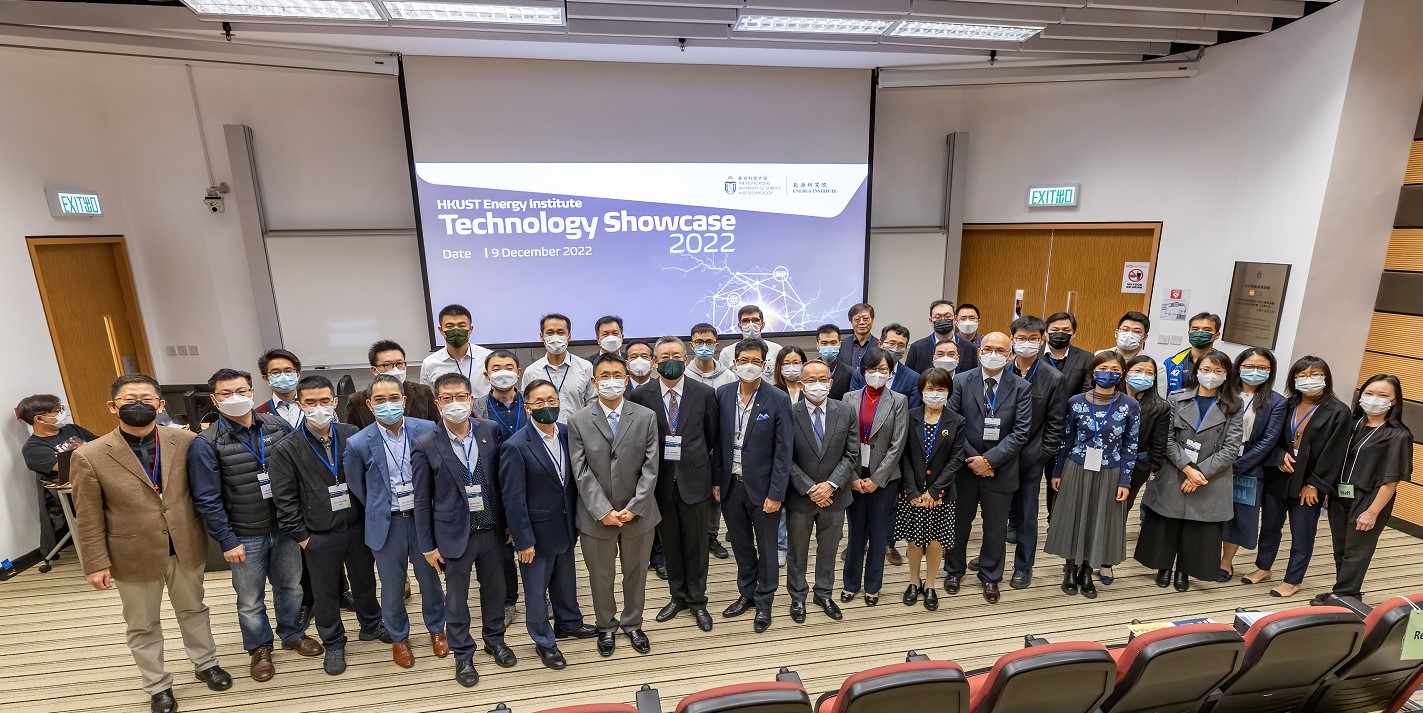
December 2022: HKUST Energy Institute Technology Showcase 2022
2028 Sustainability Challenge
As part of the HKUST 2028 Sustainability Challenge, we have developedstrategies and tactics to reduce our campus GHG emissions by 40% by 2028, against our 2014 baseline.
Our High Performance Building Standards and Guidelines highlighted our priority on sustainability and energy efficiency for major upgrades of existing buildings and new buildings, while the Sustainable Office Standards and Guidelines encourage energy-efficient practices, waste reduction, sustainable sourcing of materials, and eco-friendly communications for renovations.
To align with our energy reduction goal, HKUST continuously implements energy conservation measures for our existing buildings and facilities, such extensively installing wireless energy meters, building heat maps for monitoring indoor temperature and humidity, and recommissioning our virtual stack fan.
Data
In the academic year 2022-2023, HKUST consumed approximately 99 million kWh of energy, with 95% of it owing to electricity used to operate academic building, students and staff housing areas, chiller plants as well as laboratories. 3% of our electricity consumption is derived from renewable energy sources such as solar phototaic cells.
As a tactic to emphasize sustainable use of resources and achieve the 2028 Sustainability Challenge, HKUST formed a Green Lab Task Force to identify roadblocks and energy inefficiencies in laboratories. The Lab fume hood sash modification and occupancy sensor installation project has saved 17,300 kWh over six months, avoiding 6.7 tons of CO2.
Operations
Electric Vehicles Charging Upgrades
To support the growing adoption of electric vehicles, HKUST has installed electric vehicles (EV) charging stations for 127 parking spaces in its staff housing areas, providing convenient access to medium-speed charging capabilities.
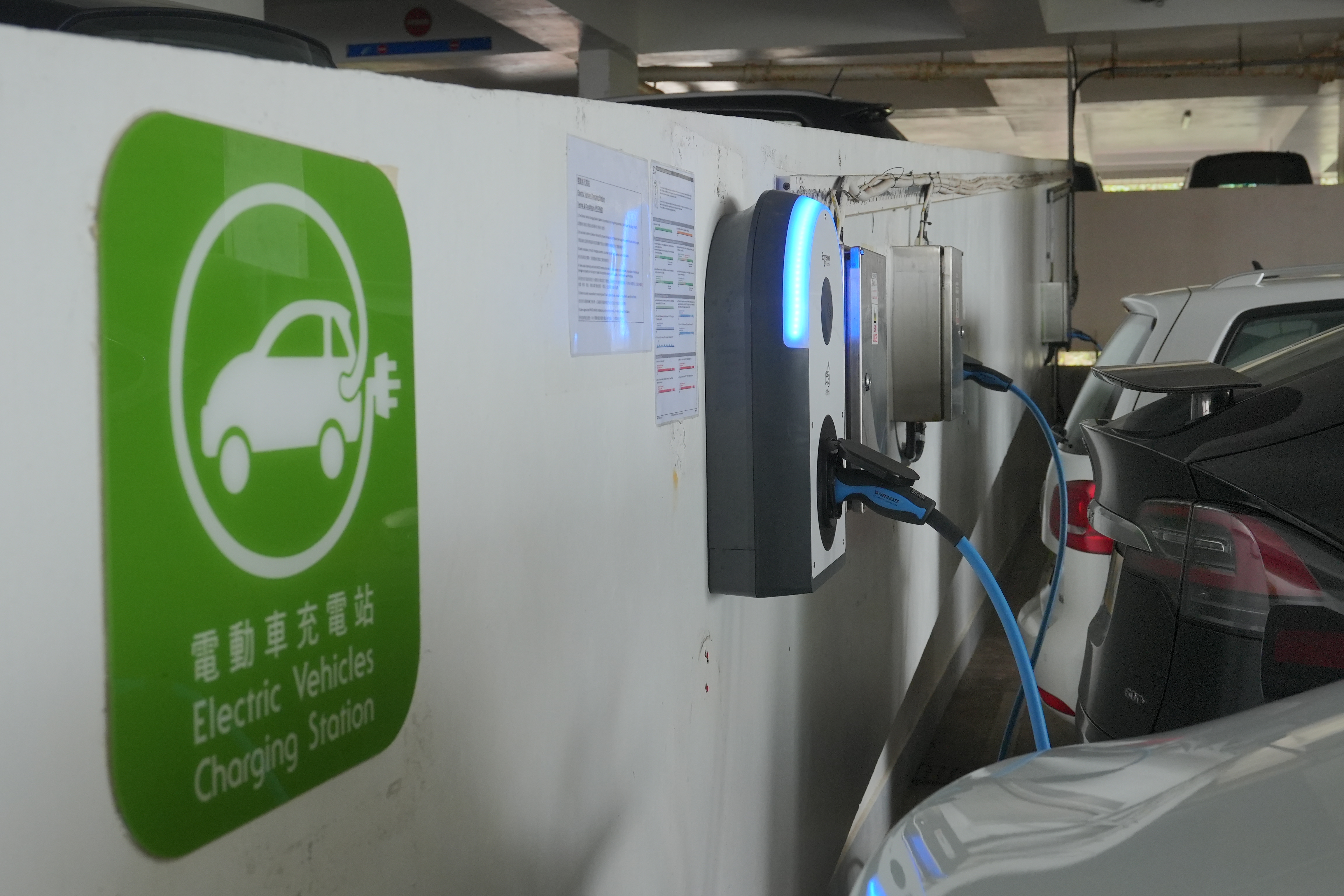
Newly installed Electric Vehicle Charging Stations
Energy Monitoring and Management System
HKUST implemented a comprehensive energy monitoring and management system to drive sustainability across its campus operations. This includes an interactive dashboard that provides real-time visibility into the university's overall energy consumption, peak and minimum demand, renewable energy generation, and water usage which eases identifying sudden spikes of resources use.
In the university's residential dormitories, HKUST has implemented an advanced air conditioning control system to promote energy-efficient usage. This system tracks real-time energy consumption for each dormitory unit and integrates a payment model that encourages students to be mindful of their energy use.

Air Conditioning Monitoring and Control System in Student Dormitories
Energy Efficiency Upgrades
The university has also upgraded various building systems. For cooling systems, 10 new air handling units have been installed, featuring electronically commutated motor (ECM) fans that are more energy-efficient than traditional fan designs.
For lifts, 3 elevators have been retrofitted with regenerative drive systems, resulting in a 30% improvement in individual energy savings.
Lighting upgrades have also been a major focus, with 3,677 light fixtures across campus now replaced with light-emitting diode (LED) technology. These LED lights not only consume less energy but also integrate occupancy sensors in stairwells and corridors, automatically turning off when the spaces are unoccupied. This has led to an average 60% reduction in lighting-related energy use.
More details can be found on page 15 of the ESG report.
Divesting from Carbon-Intensive Energy Industries
HKUST is actively investing in renewable energy sources to reduce its reliance on carbon-intensive energy industries. The university has installed over 8,000 solar panels in more than 50 locations across the campus. Furthermore, in the 2022-2023 academic year, HKUST added 296kW of photovoltaic panels at 8 different locations, ranging from the main academic buildings to staff quarters and student halls. These investments in solar energy demonstrate HKUST's commitment to increasing its renewable energy generation capacity.
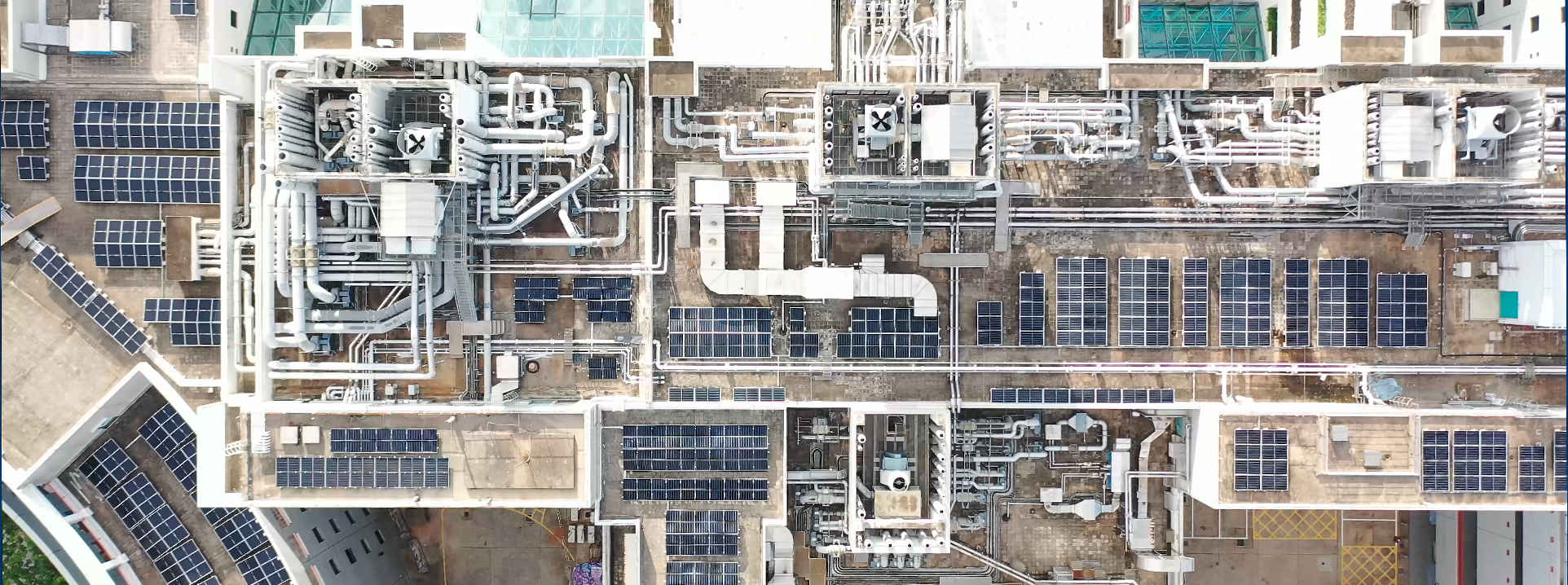
The installation of up to 8,000 solar panels at over 50 locations on campus
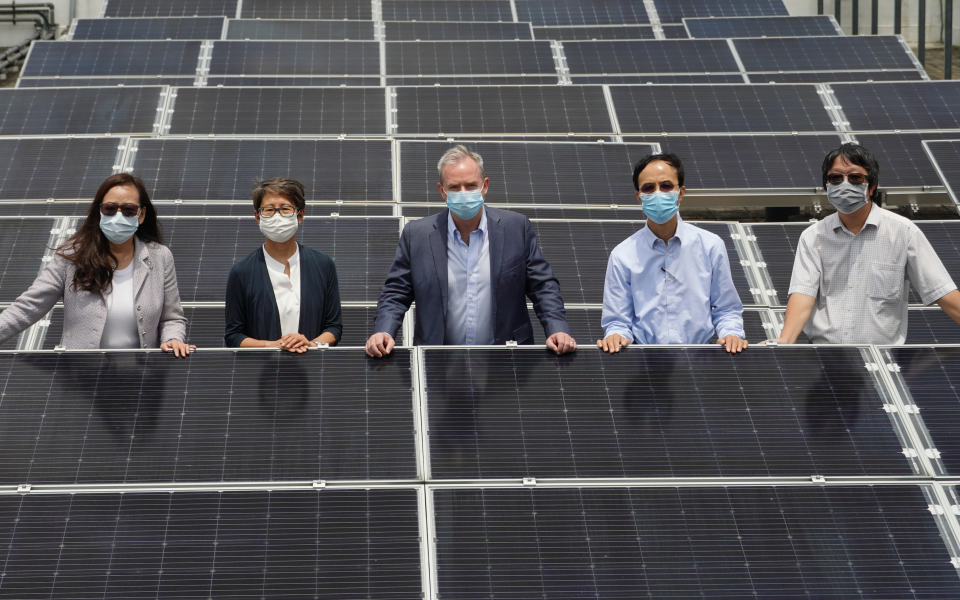
Solar panels currently being used in HKUST
Sustainable Buildings on Campus
Shaw Auditorium
As of 2023, HKUST has made significant commitment in applying sustainable design principles across its campus developments. Some of our buildings have been recognized for its achievements in delivering high-performance, as energy-efficient buildings. The Shaw Auditorium is BEAM Plus v1.2 Final Platinum-certified and has received the AIA Hong Kong Honor Award for Architecture. Its district cooling system as well as efficient design integrating solar panels on the roof and more sustainable features has won it prestigious recognition in the Green Building Award 2023, Quality Building Award 2022 and MIPIM Asia 2023.
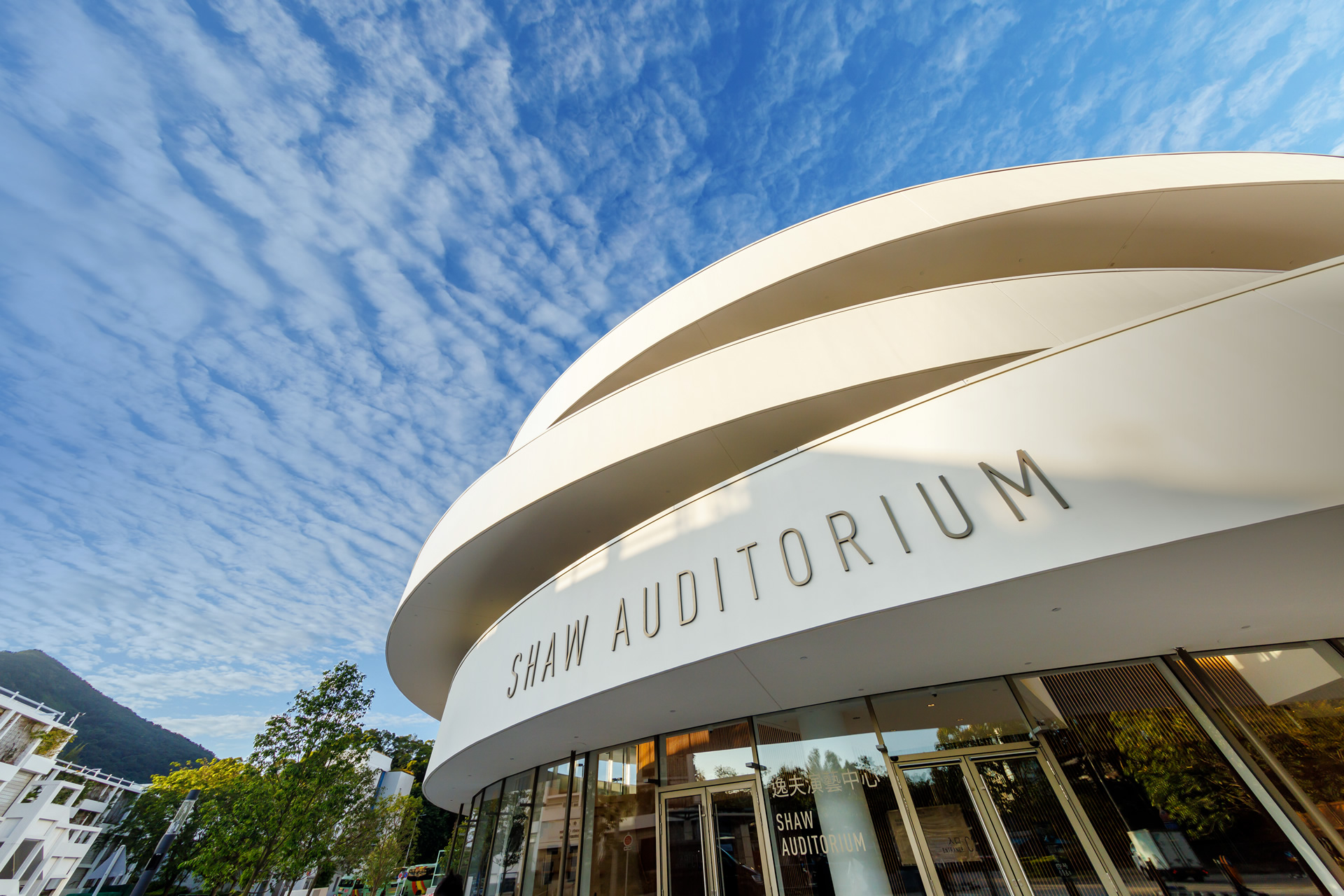
HKUST Shaw Auditorium
Jockey Club iVillage
The Jockey Club iVillage, a residential complex still under development, has also been certified BEAM Plus-NB v1.2 Provisional Platinum rating with incredible awards from HKIBIM Award 2023 and Green Building Award 2021. Features include thermal and sound insulations, solar panel arrays on roof and central chiller plant which will further the future students’ wellbeing and comfort.
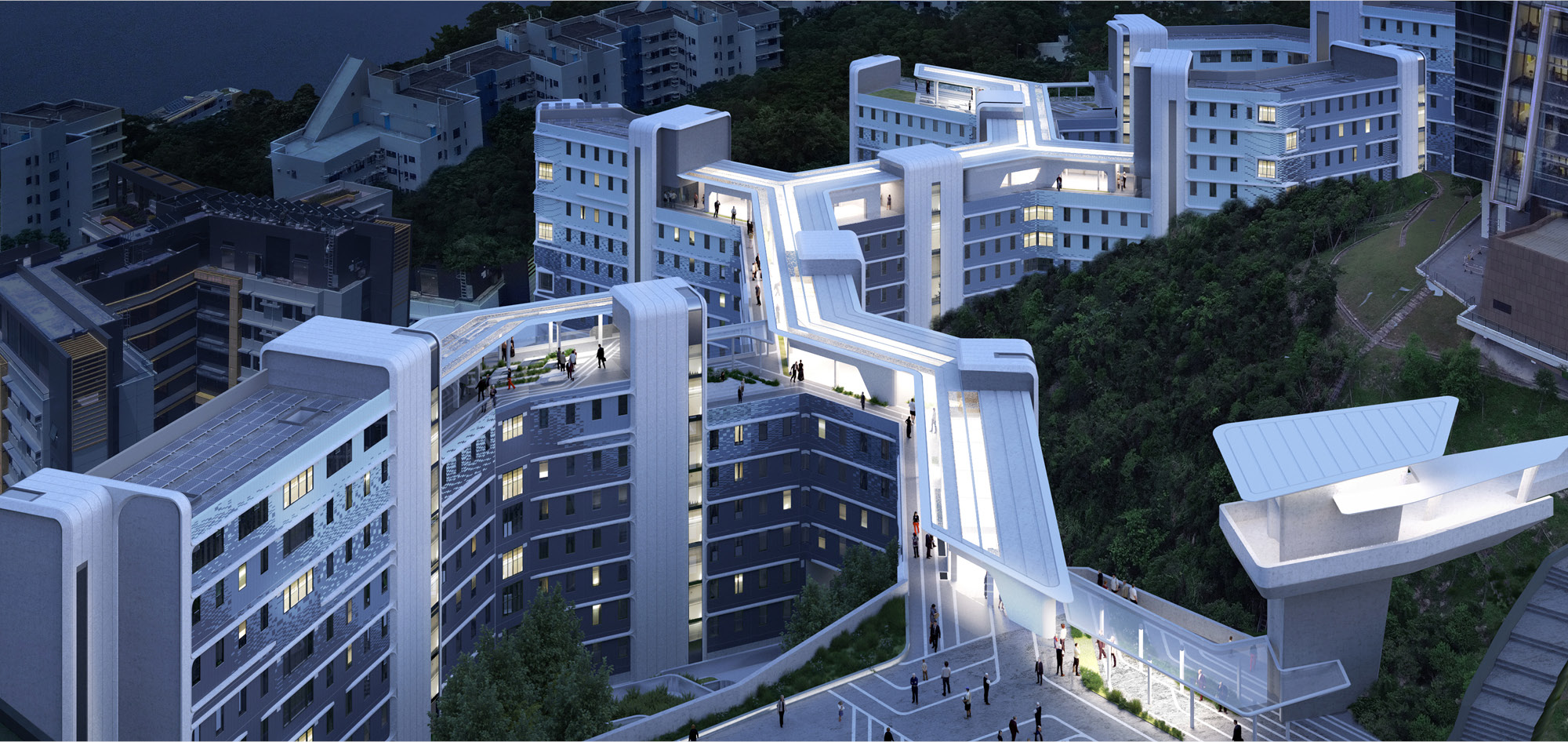
Artist Impression for the HKUST Jockey Club I-Village Hall